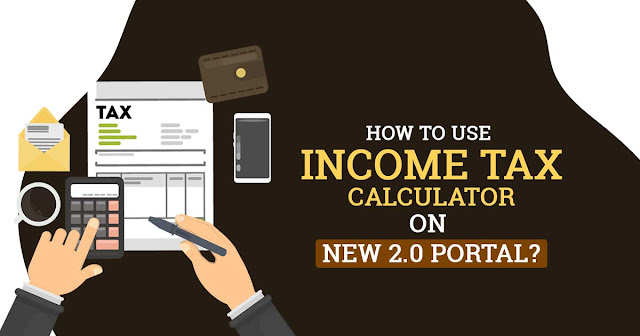Have you ever filed tax returns on your own? If yes, you know that, it’s a very tedious, long, and complicated task. To make it more complicated than ever, there is a new regime of taxes announced by the government. And choosing the regime that is more beneficial for you, new or old is a mind cruising task. Because you have to consider a number of factors for that. So for making the tax filing process somewhat easy for taxpayers, the IT department has introduced its new tax calculator.
Now the question arises of how this new calculator benefits me to choose the right regime for my taxes. Well, it gives you the liberty to calculate your taxes in both regimes to compare and then decide the most beneficial regime for filing taxes. All you need to do is fill in the information required, such as your salary and deductions.
With the previous tax system, you can claim a number of exemptions and deductions when determining your tax burden. On the other hand, the new system, as outlined in the Union Budget 2020–21, provides discounted prices. If you choose the New Tax regime, you will have to give up some exemptions and deductions that are currently available under the Old Tax regime.
Why Should You Use A Dept’s Income Tax Calculator?
There are plenty of reasons you should use a tax calculator. For instance when you calculate your taxes through a tax calculator. You know your tax liabilities and that gives you mental clarity about managing your finances. Also, it's important to note, If a taxpayer chooses the new tax system and their income is below the Rs 7 lakh category, they would receive a rebate.
According to the Budget 2023 announcement, this would also include the standard deduction of Rs. 50,000 which was a component of the previous tax system. In addition, the basic exemption threshold was increased from the previous tax regime's ceiling of Rs 2.5 lakh to Rs 3 lakh.
So good news for taxpayers under 7 lacks annual income. If they choose to file their taxes according to the new income tax regime they can save extra 33,800 rs. And those who have an annual income of more than 7 lakhs but up to 10 lakhs. They will have the opportunity to save 23,400 rs. And people with up to 15 lakhs annual income can save a whooping amount of 49,400 rs.
Steps to Use Tax Calculator
The tax department's official website has a calculator for calculating income taxes. You will be required to enter the information below in order to use it.
- Choose the type of taxpayer
- Select your gender and whether you fall under the senior or super senior citizen category.
- Now input your residential status.
- Declare your income other than salary and special rate income.
- Amount of interest you are paying on a self-occupied property. you are eligible to claim this dedication under both regimes.
- If you are earning any income from self-occupied house property
- And finally Gross Total Income, Less Eligible Income, and Total Income
Before jumping on the income tax calculator to calculate your taxes it's also important to know there is a disclaimer from the income tax department. The disclaimer stated that taxpayers can use the calculator to get an idea about their tax liabilities on both tax regimes. However, the calculator does not provide you with an accurate calculation of taxes. It is suggested that a precise calculation can be calculated in accordance with the terms of the applicable Acts, Regulations, etc.


Comments
Post a Comment